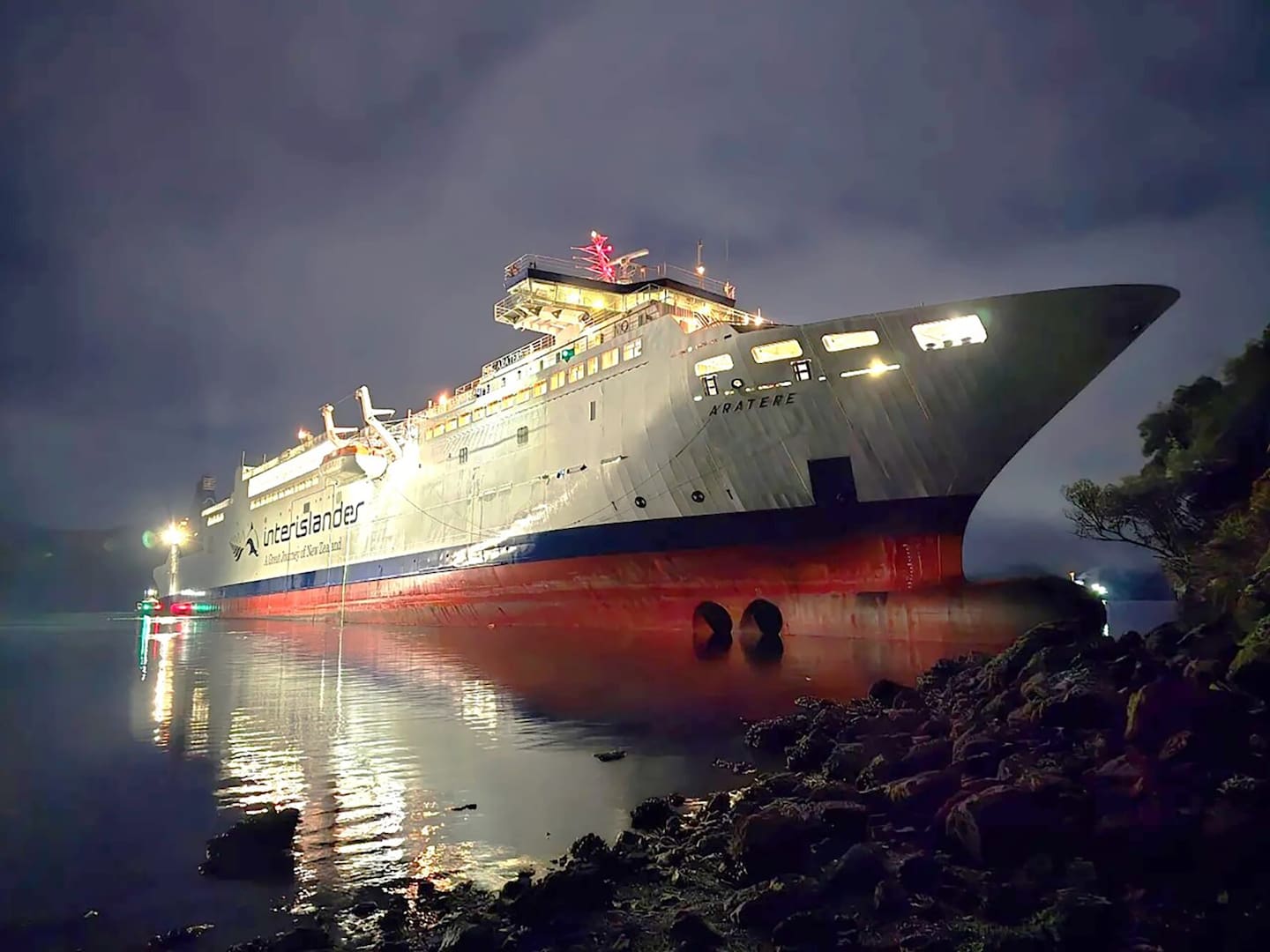- The Government has established a new company to procure replacement ships for KiwiRail’s ageing Interislander ferries today.
- Costs for the original plan to replace the fleet with two mega-ferries ballooned to more than $3 billion, leading to their cancellation.
- KiwiRail is preparing to extend the life of its current fleet until 2029.
Finance Minister Nicola Willis and newly appointed Minister for Rail Winston Peters have revealed the Government has established a new company to procure two new ferries for the future of KiwiRail’s Cook Strait ferry connection.
Willis and Peters have unveiled the coalition Government’s plan for replacing the ageing Interislander ferries a year after effectively scrapping an option developed under the Labour Government.
The announcement is being made from the Beehive Theatrette and livestreamed at the top of this story.
STORY CONTINUES AFTER THE LIVEBLOG
STORY CONTINUES
Labour, in coalition with NZ First, began Project iRex in 2018. The plan, which was to buy two large rail-enabled ferries, was then estimated to cost $775 million, including the cost of building portside infrastructure.
By December 2023, the estimated cost of the project had grown to $3 billion thanks to a blowout in portside infrastructure, with one joint Ministry of Transport and Treasury paper estimating the cost could escalate to $4b.
Willis denied a request from KiwiRail for further funding to plug the shortfall, forcing the cancellation of iRex and forcing KiwiRail to exit a contract for delivering the two ships themselves. Unlike the portside infrastructure, the ferries at $550m, had not gone over budget.
“Ministers do not have confidence that there will not be further increases and are concerned about the continued significant cost blowouts and the changing nature of the investment they are being asked to make,” Willis said at the time.
“Furthermore, agreeing to KiwiRail’s request would reduce the Government’s ability to address the cost pressures that are impacting on New Zealanders, fund other essential projects and get the Crown’s books back in order.”
What are we getting?
The key question for the Government is, can it replace the ferries with an option that delivers comparable benefits at a more reasonable cost?
Unfortunately for the Government, the main benefit offered by the original option, which was to allow trains and train freight to easily cross the strait in large volumes, was also a factor in the immense cost because the landside infrastructure large rail-enabled ferries required was very expensive.
Labour reckons it knows what the Government has agreed. On Tuesday, Labour’s finance spokeswoman Barbara Edmonds asked Willis if the Government had “set aside a tagged contingency of $900m for the procurement of two smaller, non-rail-enabled ferries?”
Willis would not confirm or deny the claim.
The other challenge for the Government is the cost of breaking the contract to build the original ferries, which is yet to be agreed.
Prime Minister Christopher Luxon has said the ferries will cost less than the iRex project, confirming that figure to RNZ’s Morning Report this week.
How did we get here?
After the decision was made to cancel iRex, a ministerial advisory group was appointed to consider the future of the strait’s notoriously treacherous waters.
The group’s three members were paid more than $80,000 between them, just two months into the job. Willis has defended this cost, saying it was inappropriate to rely on KiwiRail’s advice given the state-owned enterprise “got us into this mess”.
The Ministry of Transport was also tasked with considering whether KiwiRail should even be providing a Cook Strait ferry service in the future.
Reports from the advisory group and ministry were delivered to the Government in June.
There is speculation the Government has considered setting up a Schedule 4A company to procure the new ships and potentially operate them.
The Government can sell some of its shares under a Schedule 4A framework but it must retain a majority shareholding in the company.
 The Interislander ferry Aratere after it ran aground in the Marlborough Sounds.
The Interislander ferry Aratere after it ran aground in the Marlborough Sounds.
KiwiRail bosses revealed last week they had advised the Government on the implications for their business if a separate entity ran the ferries.
They also disclosed that negotiations to exit the mega-ferry ship-building contract with Hyundai Mipo Dockyard will extend into next year.
Engine parts had been built and tested by the time KiwiRail officially cancelled the contract in February.
KiwiRail staff members travelled to South Korea in January before chief executive Peter Reidy also travelled there in April.
Willis has not committed to getting new ships by the time the mega-ferries were due to arrive in 2026.
KiwiRail is now preparing to extend the life of its existing Interislander fleet until 2029 after receiving new advice from global maritime experts Det Norske Veritas.
The peer-reviewed advice suggested there were no systemic issues that would prevent the life of the ships from being extended, subject to investment and enhanced maintenance.
Thomas Coughlan is Deputy Political Editor and covers politics from Parliament. He has worked for the Herald since 2021 and has worked in the press gallery since 2018.
Take your Radio, Podcasts and Music with you









